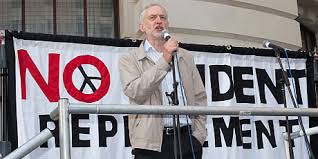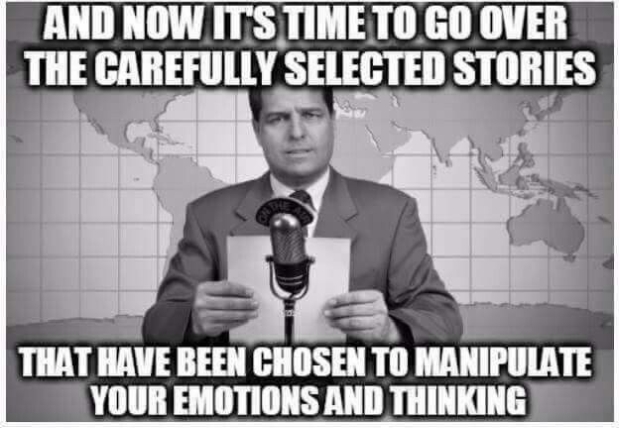
There is a range of public opinion on Trident but, outside of the Labour Party, it is unlikely that those holding differing views get to discuss the issue with each other. John Wright argues that this poses a threat and a challenge to Labour.
There are the pacifists, who naturally want rid of Trident, along with all weapons. Then there are people who feel a necessity for some form of weaponry but who have a particular moral objection to nuclear weapons – doubtless a legacy of their grotesque use on Hiroshima and Nagasaki.
Then there are those who want Trident scrapped because of its military irrelevance and its astronomical cost, draining funds which could be better spent on health care and education. In this group there will be many in the Labour Party who, nevertheless, would be prepared to live with Trident for another decade or two rather than see Corbyn lose in 2020 as a consequence of a manifesto which included unilateral disarmament (a la Kinnock). Party members of this opinion (and I guess at this early stage I am one) think: ‘Please don’t jeopardise all of the other policies – anti-austerity, housing, investment in green industries, equality policies, etc. – for this one policy on Trident. If the price to be paid for having Labour’s economic and social programme enacted is having to live with Trident a while longer, regretfully, so be it.’
The SNP’s rationale for scrapping Trident diverges from all of the above. The party wants its policies whenever possible to pre-figure an independent Scotland, and an independent Scotland will never be able to afford nuclear weapons nor ever need them as a deterrent.
And of course, there is a similar spread of opinion amongst those who want to keep Trident.
There are those who genuinely fear a nuclear enemy at the gate (Putin’s Russia, Kim Jon-un’s North Korea, a future Diash) and who believe that the bomb is our only protection.
Then there are those, less fearful, who feel ‘better safe than sorry’ and who are easy with half a century’s status quo.
Then there are those whose patriotism takes the form of a desire to be up there, on the world stage, a fully-fledged and paid-up member of the nuclear club. Perhaps, too, for some, this helps remove the smart of losing empire: We may no longer rule the waves etc., but, hey, with our own bomb, at least we are one of today’s super powers.
For the groups at either end of the spectrum of opinion, pacifists and frustrated ‘great brits’, the strategic and financial arguments against Trident would hold no interest. But the majority of people, whose opinions are likely to lie mid-spectrum, are waiting to have the options clearly explained:
What is the military value of Trident to a defence strategy for our country?
What is the likelihood of its proving an effective deterrent against nuclear attack?
And from whom?
And, given the enormous costs of Trident, how could that money be better spent on a more militarily relevant defence strategy?
And what we could achieve as a society in addition (from paying down the deficit to shoring up the NHS) without the burden of Trident?
The Labour Party needs this public debate to begin as soon as possible, because if it is left until 2020 and Labour goes into the general election on a ‘scrap Trident’ platform the right-wing media’s inevitable vitriolic and wholly biased attacks are likely to sink all chance of victory (and therefore the chance of making progress of any kind on Trident).
The strategic benefit to Labour of kicking-off a public debate on Trident sooner rather than later is that the party will then be in a position to test the water of public opinion before drawing up its 2020 manifesto.
For if, come that time, scrapping Trident is clearly at odds with public opinion, and if it is unrealistic to envisage Labour being able to change that opinion in time for the election, then rather than pressing ahead with this self-defeating (albeit idealistic) goal, the party will need to acknowledge that more public debate – more public education, if you like – is needed, and in place of a pledge to scrap Trident the manifesto could include a pledge to hold a referendum on the issue.
Some will condemn this as ‘kicking the can down the road’, but in addition to creating the space for eventually winning the argument against Trident with the public, the pledge of a referendum may be a position which would unite the PLP.




One of the key issues with regard to Trident and noticeably absent from the above article is – who takes the decision to authorise its use. When Corbyn was interviewed as to whether he would be prepared to push the nuclear button in an emergency he answered no. What he should have answered was the the launch of Trident’s missiles would not be something that a British PM could do, or at least could not do without authorisation from the big boss on the other side of the pond.
The UK PM is powerless in the respect since if does not have an independent foreign or security policy since NATO is under the command of the US, and the EU foreign and security policy is now aligned with NATO, and this relationship was made explicit in the Lisbon Treaty. This also goes for other European governments.
The EU has now, in Pentagon jargon, an area of forward deployment (and subsequent military build-up) in the present hybrid war against Russia.
The real issue seems to me whether we wish to remain a province in this empire, which of course makes us a target should the warm war against Russia turn into a hot war, or do we take a more neutral status which takes us out of the conflict and makes us less of a target.